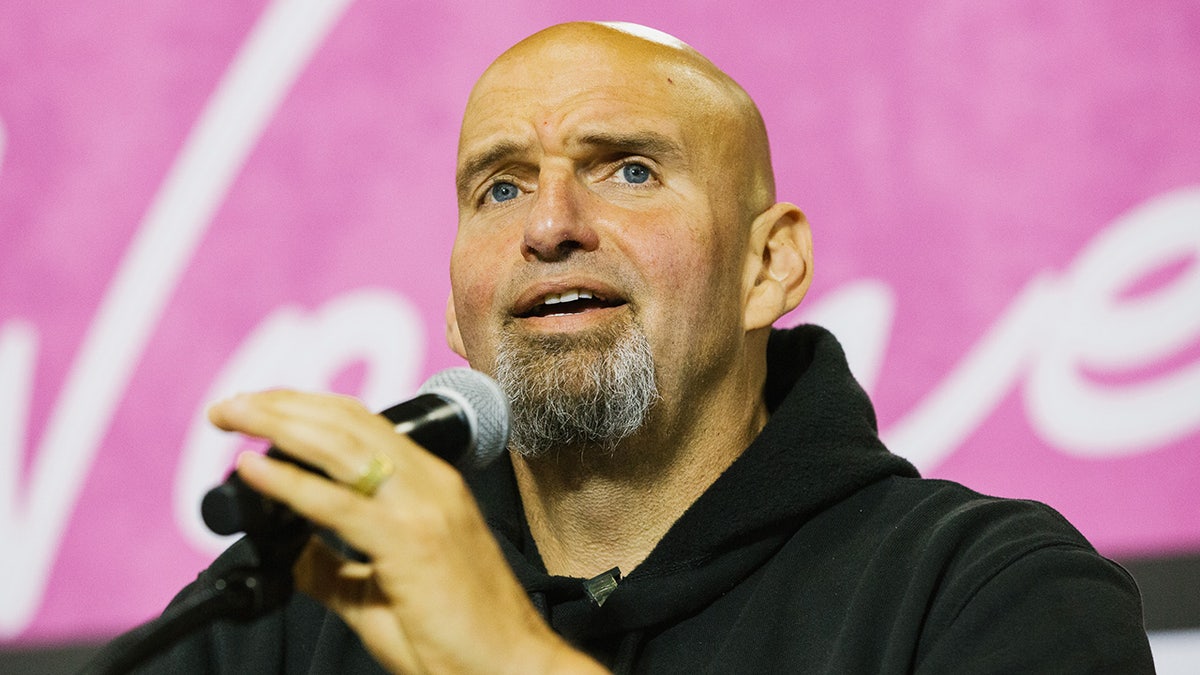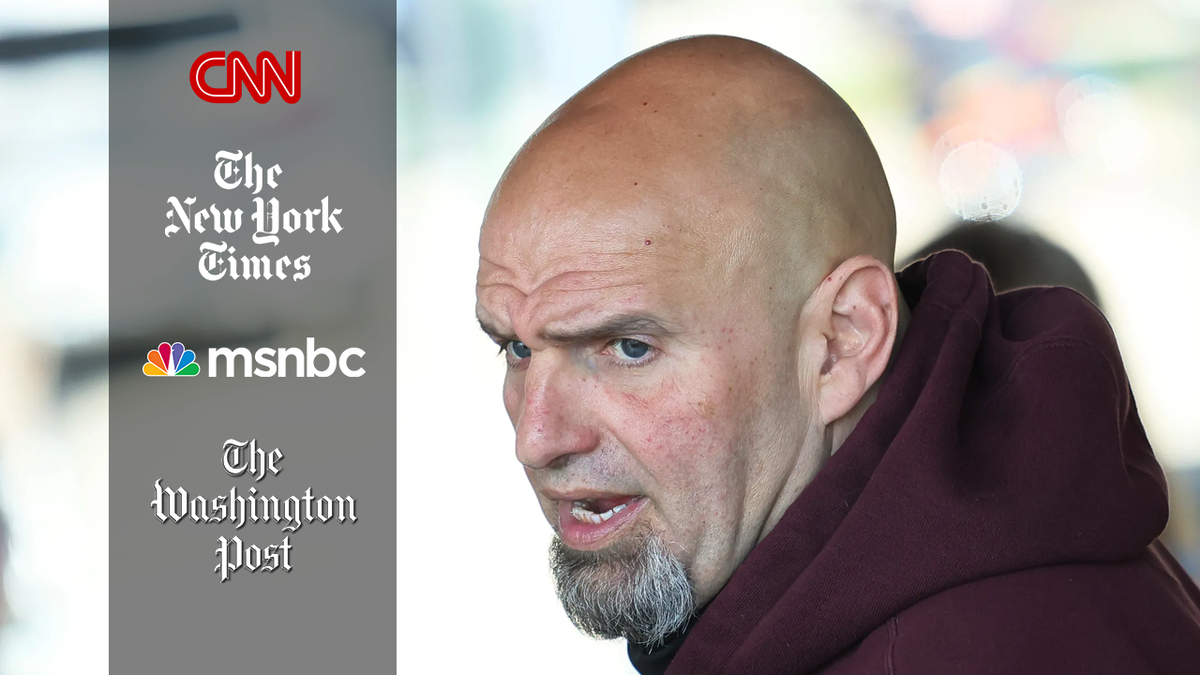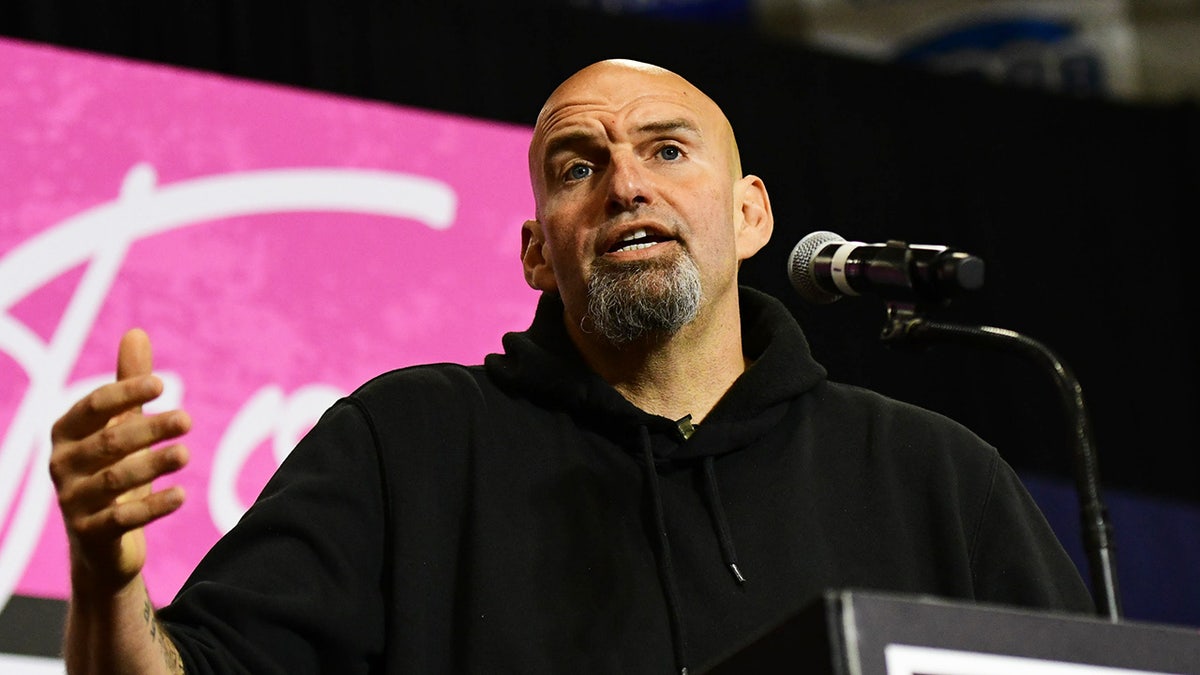Hegseth: Democrats don't believe their own rhetoric
'Fox & Friends Weekend' co-host Pete Hegseth sounds off on the 'sheer political cynicism' as Democrats prop up far-right candidates in order to boost their own chances in the midterms.
As the Senate midterm elections draw closer, media outlets have been forced to acknowledge Pennsylvania Democrat candidate John Fetterman’s health issues.
In May, Fetterman suffered a stroke which forced him off the campaign trail in Pennsylvania for approximately three months. Since then, Fetterman has limited his public appearances and refused Republican candidate Mehmet Oz’s requests for more debates. So far, Fetterman has only committed to one debate "somewhere in the middle to end of October" which would be several weeks after early voting begins in his state.
In the meantime, several conservative critics along with Oz’s campaign have criticized Fetterman’s refusal to debate, suggesting that he has lingering health issues following his stroke.
Although Democrats and members of the mainstream media have largely defended Fetterman’s actions and ignored concerns over his health, some pundits have begun spotlighting Fetterman’s health as a "legitimate" issue leading up to the election.

John Fetterman, lieutenant governor of Pennsylvania and Democratic senate candidate, speaks during an abortion rights rally at Montgomery County Community College in Blue Bell, Pennsylvania, US, on Sunday, Sept. 11, 2022. (Michelle Gustafson/Bloomberg via Getty Images)
WASHINGTON POST EDITORIAL BOARD CALLS OUT FETTERMAN CAMPAIGN, DEMANDS HE ATTEND DEBATE
On Sept. 6, The Pittsburgh Post-Gazette, one of the major newspapers in Fetterman’s state, published a piece questioning whether the Democrat is capable of debating his opponent.
"Mr. Oz has raised legitimate concerns. If Mr. Fetterman’s communication skills have not yet recovered sufficiently to effectively debate his opponent, many voters will have concerns about his ability to represent them effectively in Washington. While he has gamely undertaken more campaign events and media interviews in recent weeks, Mr. Fetterman still speaks haltingly and relies on closed captioning to fully understand his conversation partners," the editorial board wrote.
NBC News senior politics reporter Jonathan Allen likewise agreed later that day that media reports have been forced to recognize Fetterman’s health concerns as they become more apparent.
"I'm not sure whether it's helping or hurting him with the voters at the moment. What it is doing, though, is it's making the media report on Fetterman's health. And that's something that there had not been a lot of during the summer," Allen said.
The Washington Post was more critical of Fetterman on Monday, insisting that the candidate either commit to having more debates or release his medical records to provide transparency for voters.
"Mr. Fetterman is asking voters for a six-year contract without giving them enough information to make sound judgments about whether he’s up for such a demanding job. We have called for full disclosure of health records from candidates for federal office in both parties, including Donald Trump and Joe Biden, and we believe Mr. Fetterman should release his medical records for independent review," the Washington Post editorial board wrote.

Pennsylvania Lt. Gov. John Fetterman's health has become a growing concern for the midterm elections. (Michael M. Santiago/Getty Images)
CNN’s Chris Cillizza agreed with the Washington Post on Tuesday, calling Fetterman’s health a "lingering issue" that "isn’t going away" any time soon.
"At its most basic, the choice for voters in any election is: ‘Can this person effectively do the job for which they are running?’ Fetterman, it appears more clear with each passing day, hasn’t cleared that bar yet," Cillizza wrote.
This contrasted previous CNN analysts and figures who suggested that Fetterman’s health, though a "legitimate issue," could be spun into a positive feature of Fetterman’s campaign.
"This may end up being to the benefit of Fetterman because we all know someone who has suffered a stroke, and Oz through his response to this, I think has made Fetterman more sympathetic," CNN political commentator Michael Smerconish said.
CNN’s John Avlon, however, admitted that Fetterman has an "obligation" to participate in more debates as a candidate.
"I don’t know why it is so hard in our politics today to apply the same standards no matter which political party is in question. You know, you give Republicans a lot of grief for trying to duck debates, I know I do," Avlon said. "You know what? You gotta do the same thing when a Democrat does it for whatever reason."
Reuters also reported on Sunday that there were even some Democrats within Fetterman’s campaign who recognized the health concerns as an issue among voters.

Democratic Pennsylvania Senate nominee John Fetterman holds a rally with U.S. Congresswomen Madeleine Dean and Mary Gay Scanlon on September 11, 2022 in Blue Bell, Pennsylvania. In the November general election, Fetterman faces U.S. Senate candidate Dr. Mehmet Oz. (Mark Makela/Getty Images)
"It's important for people to see John Fetterman out on the campaign trail and to see for themselves that he's all right. In a state where one (percentage) point can decide an election, it matters," Joe Foster, a state Democratic committeeman from the Philadelphia suburbs said.
The Pittsburgh Post-Gazette published an additional report from The Philadelphia Inquirer’s Julia Terruso on Sunday acknowledging that Fetterman "has lingering speech issues after his stroke" and the impact it could have on his Senate run.
CLICK HERE TO GET THE FOX NEWS APP
Aside from his health issues, Fetterman has been criticized for holding radical far-left beliefs, particularly on crime. In 2016, Fetterman said he held a "Black Lives Matter" worldview and since has frequently pushed to commute the sentences of people convicted of murder.
Fox News' Brian Flood, Joseph Wulsohn, Nik Lanum, and David Rutz contributed to this report.




















